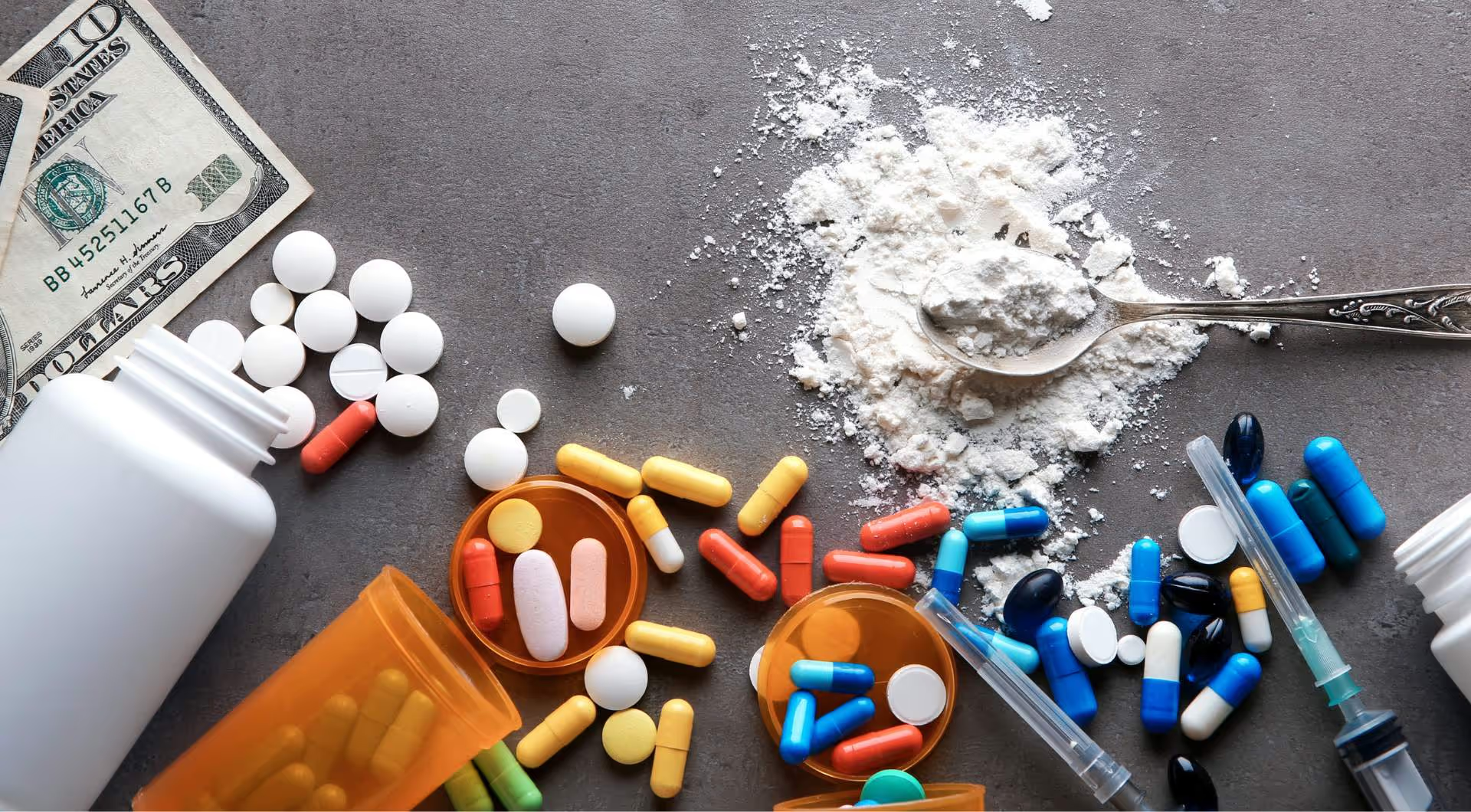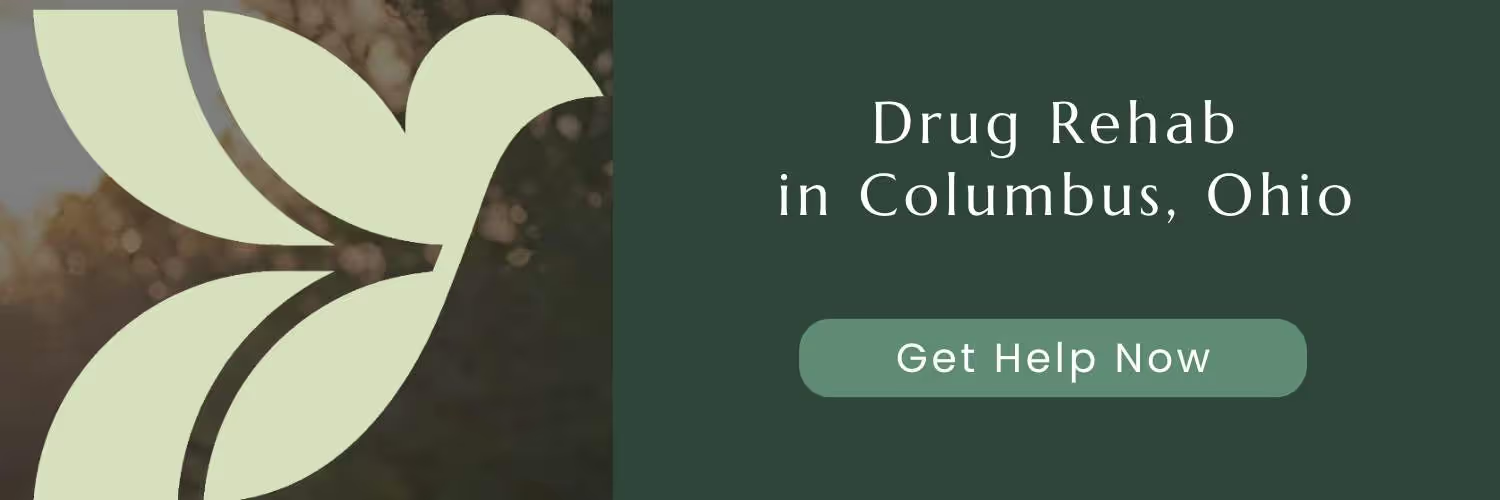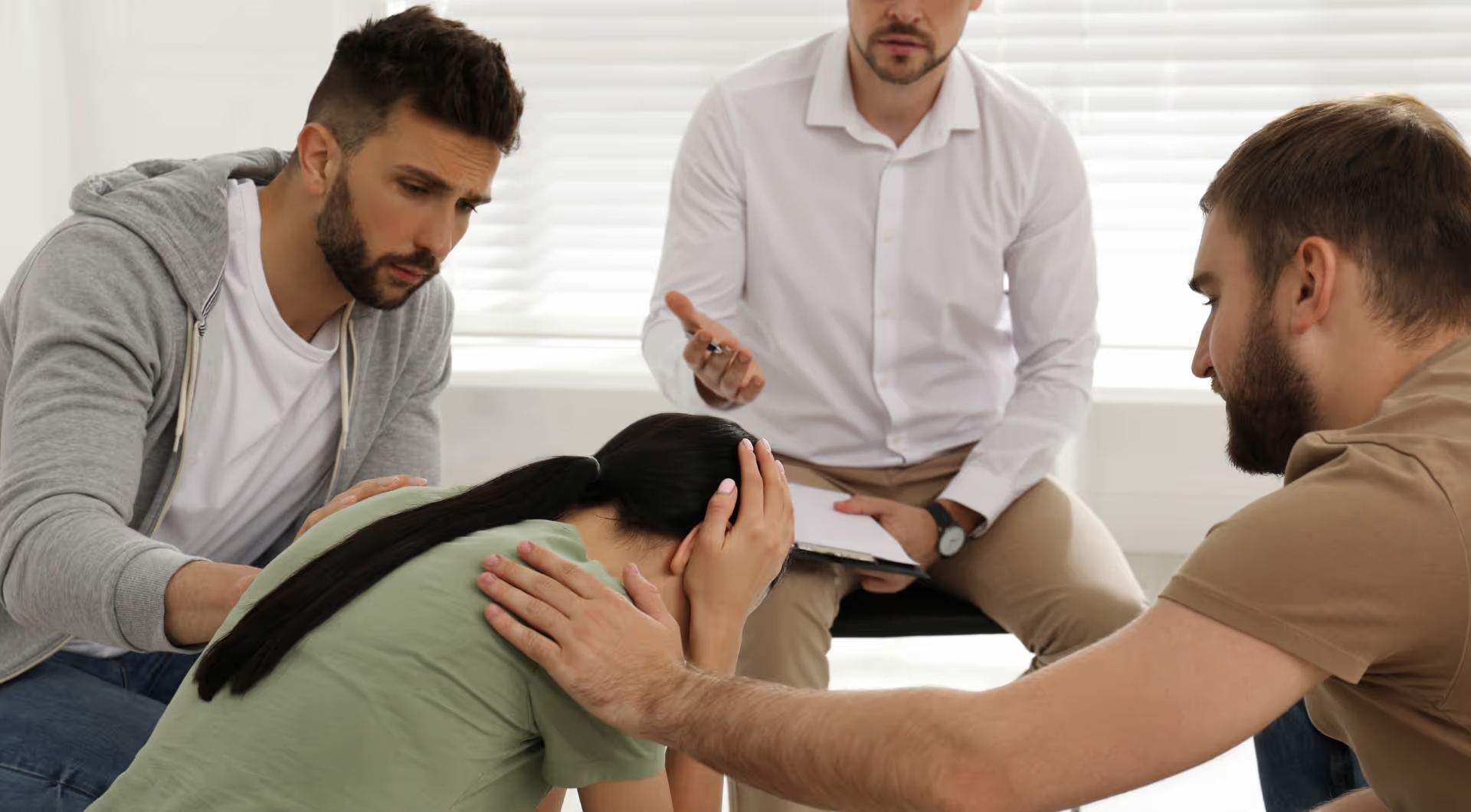Why Do People Use Drugs? Understanding the Reasons Behind Substance Abuse and Addiction

You’ve just found out someone you are close to is using drugs. Finding out a loved one is abusing illicit substances is a devastating discovery. Your mind is flooded with different emotions and questions. Why do people take drugs in the first place?
There are a multitude of reasons why someone may make the choice to start using drugs and why it can become an addiction.
To help get a better understanding of the “why” behind drug use, we will go over some of the reasons people start using drugs and how they become addicted to them.
Table of Contents
- Why Do People Do Drugs?
- 8 Reasons Why People Take Drugs
- Why Do Some People Get Addicted to Drugs?
- DOVE Recovery Provides Professional, Empathetic Drug Addiction Treatment in Columbus, Ohio

From an early age, we are taught in school that drugs are harmful and to resist peer pressure. Despite knowing the dangers and addictive properties of drugs, some people still end up experimenting with them. What causes people to use drugs is dependent on their individual situation.
Some of the common reasons people begin experimenting with drugs are:
- Fitting in with peers
- Self-medication
- Performance enhancement
- Feeling good
- Health condition management
- Coping with grief
- Stress reduction
- Boredom
So, why do people abuse drugs? Many times, people don’t start experimenting with drugs with the intent to become addicted. Unfortunately, because of the addictive properties of illicit substances, reliance is a byproduct of drug use.
#1: To Fit In
The concept of “peer pressure” has long been a focus of study as it relates to drug use, especially amongst adolescents. Many studies do show indications that a person is more likely to experiment with drugs if those around them are. These same pressures carry on into adulthood as well. While it may not be your classmate behind the bleachers trying to convince you to do drugs, it may be your coworker encouraging you to try substances that can help relieve the stresses of work life.
Trying to fit into a culture that normalizes drug use is what can potentially lead to someone becoming completely reliant on illicit substances.
#2: To Self-Medicate
A study from 2022 estimated that around 1 in 5 adults (59 million people) live with some form of mental illness; the severity of these range from mild to moderate to severe. It is interesting to note that same year, a survey given by the Substance Abuse and Mental Health Services Administration (SAMHSA) found that 16.5% of people surveyed (46.6 million people) said they had used drugs that month.
While there is no definitive causation between mental health and drug use, there is a significant enough correlation to show that there is a link between substance use disorder and mental health disorders in an attempt to self-medicate some of the symptoms associated with various mental health issues.
Self-medication of any kind, without the direct supervision of a trained professional or physician, is extremely dangerous. The temporary relief from symptoms is not worth the long-term, permanent issues that can arise from drug use.
#3: To Boost Performance
In an increasingly competitive world, the incidence of use of stimulants and performance-enhancing drugs has increased significantly in the last decade, especially among children and teenagers.
The pressure to be on top in sports, school, and work continues to strengthen. As a means to keep up, stimulants (cocaine, methamphetamine, Adderal, Ritalin) and anabolic steroids are used to boost physical and mental acuity.
However, these results can cause permanent damage in the long run, and the risks outweigh the rewards.
#4: To Feel Good
Drugs affect the neurotransmitters in parts of your brain (basal ganglia, amygdala, and prefrontal cortex) by altering the process in which your neurons send, receive, and process signals. The result of this change triggers different feelings depending on the drug.
Some drugs produce feelings of intense energy, speeding up, and increased attention and focus. In contrast, others may have the opposite effect of feeling calm, relaxed, and even drowsy.
Unfortunately, once the drug wears off, the feelings of pleasure are replaced by even worse feelings of being unwell.
#5: To Manage a Health Condition
Drug use has been linked to self-medication of mental health disorders such as depression and anxiety. But, oftentimes, drug use comes as a result of managing physical health conditions as well.
Some common chronic conditions often at risk for the comorbidity of substance use disorder are:
- Hypertension
- Arthritis
- Diabetes (Type I and II)
- Chronic kidney disease
- Asthma
- Chronic obstructive pulmonary disease (COPD)
- Ischemic heart disease
- Cancer
- Hepatitis B
- Hepatitis C
In cases where drug use is a result of the management of another health condition, treatment centers and providers should create a plan that addresses both the substance use disorder and the specialty care of their other health conditions to increase the chances of a successful recovery.
#6: To Cope With Grief
Loss is an overwhelming emotion. The feelings associated with grief can be brought on by someone dying, the end of a relationship, estrangement, or the anticipatory grief of someone with a terminal illness.
Grief can bring on physical and emotional symptoms of depression and anxiety. Some people find that they are unable to process their grief on their own and turn to drugs as a means to cope and escape the pain of loss.
#7: To Reduce Stress
The constant hustle and bustle of daily life and increasing pressure to succeed at school and work have led to some of the highest levels of reported stress in years.
Stress can manifest itself physically and mentally. Stress can make someone feel sad, anxious, and irritable. It can also present as headaches, body pains, upset stomach, and insomnia. Chronic stress can increase the chances of someone resorting to drugs as a means to reduce the symptoms of stress. Ironically, the results of substance use disorder can have the opposite effect and increase stress in a person’s life because of the challenges associated with it.
#8: To Relieve Boredom
It’s hard to believe, but boredom and feeling mentally stuck are at an all-time high in our digital age. Kids and adults have the world at their fingertips through social media, streaming content, and interactive apps that can instantly connect them with others. However, this virtual connection can replace physical connection and cause a feeling of boredom and loneliness.
When someone feels trapped or lacks mental stimulation, they may turn to drugs as an escape from the monotony of daily life. Without adequate mental stimulation and outlets, it is easy to become enamored by the idea of high-risk behaviors to feel entertained.
Studies show that patients who had higher frequencies and longer durations of boredom were more likely to engage in substance use, especially when coupled with depression and anxiety.
Boredom is also one of the leading causes of relapse. When someone in recovery does not have adequate outlets and resources to support their recovery, they are more likely to resort to old habits.
DOVE Recovery provides comprehensive, individualized treatment for those with substance use disorders that aims to help patients find positive, productive coping mechanisms for times when they find themselves struggling with boredom and loneliness.

Typically, people begin using drugs as a means to escape reality. Drugs trigger the pleasure centers of the brain. However, over time, the brain becomes used to the drugs, and to get the same euphoric feelings, the drug(s) need to be consumed in greater quantities. Even worse, just to avoid withdrawal symptoms, a person needs to continue to consume the drug in increasing amounts.
So why do people get addicted to drugs? There are several factors that play into the addiction complex within a person. Things that can affect addiction in people are:
- Biology: People’s bodies react to drugs differently. Some people can become addicted after the first time they experiment with drugs, while others may have a higher tolerance level. Some people may also have an adverse reaction to drug use that causes them never to try drugs again. There is a strong genetic component to addiction as well, and it is believed that there are inheritable qualities that can contribute to addiction. Unfortunately, no scientific test can predict how people will react to different substances.
- Environment: Outside factors can greatly affect the likelihood of a person becoming addicted to drugs. If a person is having issues at home, school, or work, their desire to escape reality can drive the desire to continue to misuse substances to get their mind off of their current reality. Additionally, if a person is surrounded by drug misuse by their family, friends, or neighbors, they are at greater risk of becoming addicted to drugs.
- Development: The younger you are when you start using drugs, the higher the chances of becoming addicted. Kids' and teenagers’ brains are still growing, and when drug use is introduced during the development of their brains, the chance they will become addicted increases significantly.
- Untreated mental health disorders: Often, drug use begins as a means to self-medicate undiagnosed problems. Depression, anxiety, and untreated attention-deficit/hyperactivity disorder (ADHD) are risk factors for addiction.
Regardless of why or how a person becomes reliant on illegal substances, drug use is one of the hardest addictions to quit. Since long-term substance abuse causes changes in the brain’s functions, treating it takes time. Currently, the commonly held belief amongst treatment providers is that there is no one-size-fits-all approach to treating substance use disorders. Finding a provider willing to develop an individualized care plan that considers all facets of a person’s situation may increase patients' chances of greater success.

It may seem hopeless and overwhelming, but there are options for treatment and rehabilitation that provide support for the person addicted and their loved ones.
DOVE Recovery is a drug rehab in Columbus, Ohio that provides outpatient care for those needing to treat their substance use disorder. DOVE Recovery’s facilities are clean, welcoming, and run by a team of professionals dedicated to every single patient's recovery. Providing supportive, empathetic, judgment-free treatment is our priority.
Contact us today to get started on your loved one’s journey to recovery.

